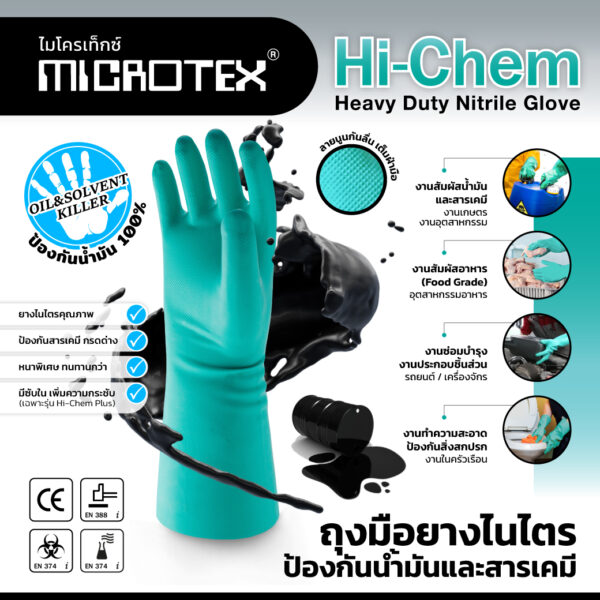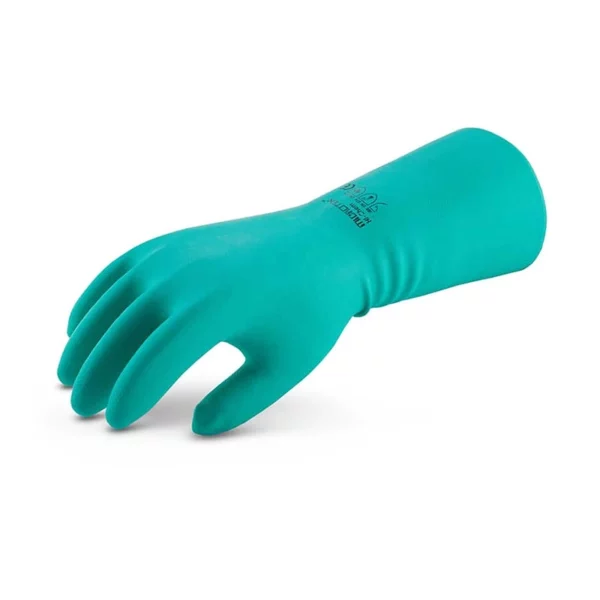The Dangers of Insecticides: Are Your Gloves Really Protecting You? | GLOVETEX.COM

In the 10-month period of fiscal year 2562 (October 1, 2018, to July 17, 2019), data from the "National Health Security Fund" or "Gold Card Fund" reported patients admitted to hospitals nationwide due to exposure to chemical pesticides. Among them, there were a total of 3,067 patients, with 407 fatalities. The total medical expenses reimbursed amounted to over 14.64 million baht. This data categorizes patients according to the types of chemical pesticides they were exposed to.
1. Organophosphate and Carbamate insecticides
2. Herbicides and Fungicides
3. Other Types of Agricultural Chemicals
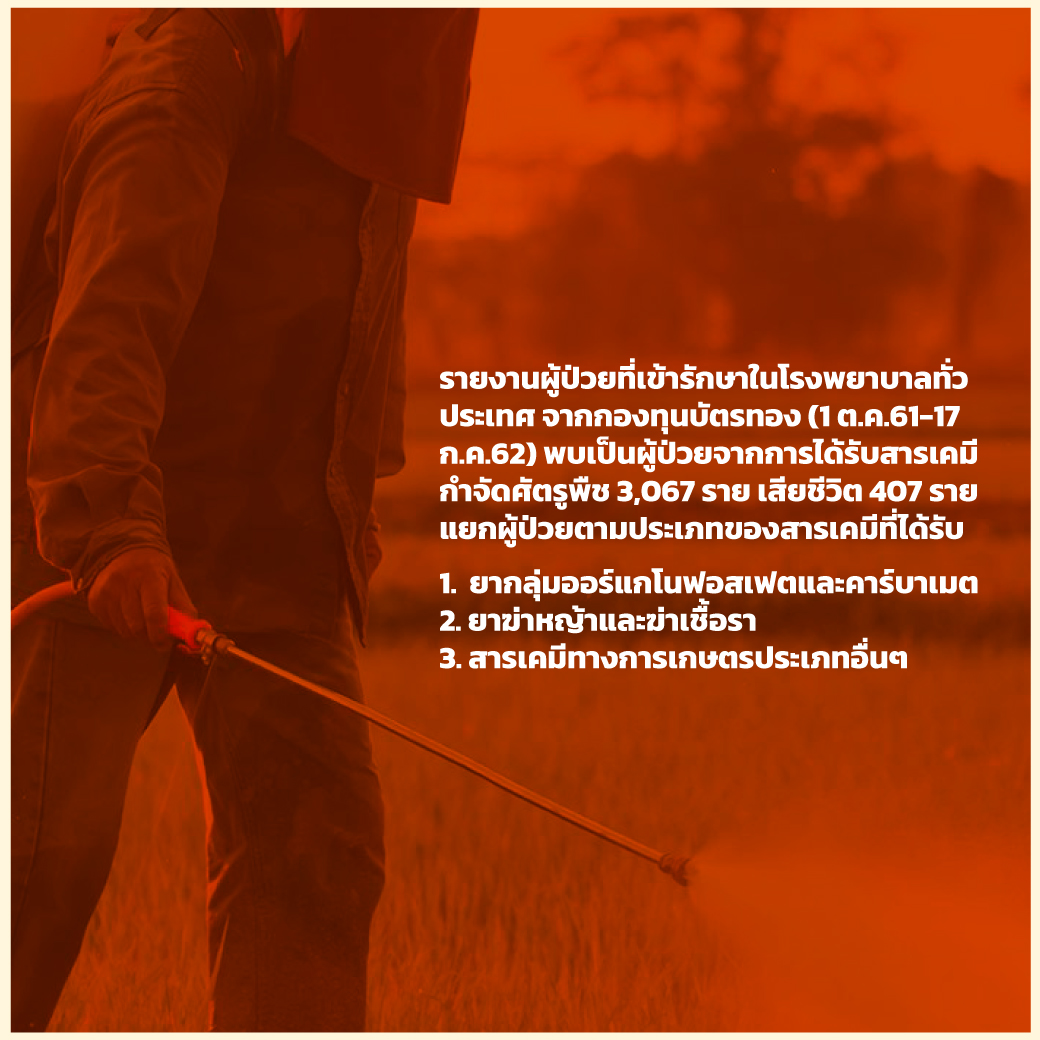
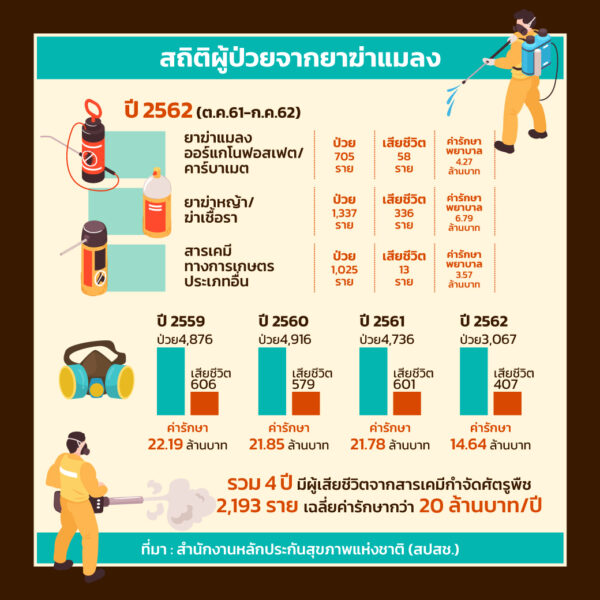
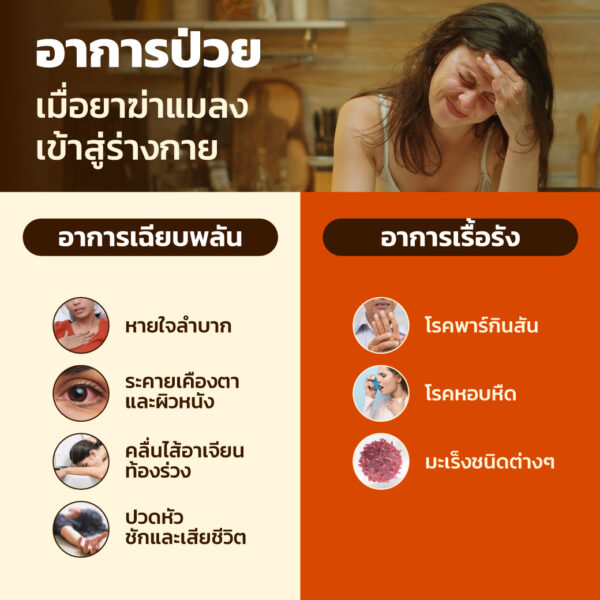
Potential symptoms of exposure to "pesticides" include:
Acute poisoning from pesticides can pose serious risks or even lead to fatalities shortly after exposure through inhalation, skin contact, or ingestion, typically exhibiting clear symptoms within 48 hours. These symptoms include:
- Difficulty breathing
- Irritation of the eyes and skin
- Nausea, vomiting, and diarrhea
- Headaches, seizures, and death
Chronic poisoning from pesticides can lead to long-term adverse effects, which may manifest gradually over time. Exposure to low levels of chemical substances may result in minor abnormalities or show no immediate symptoms. However, prolonged accumulation of these chemicals can lead to severe illnesses, such as:
- Parkinson's disease
- Asthma
- Various types of cancer
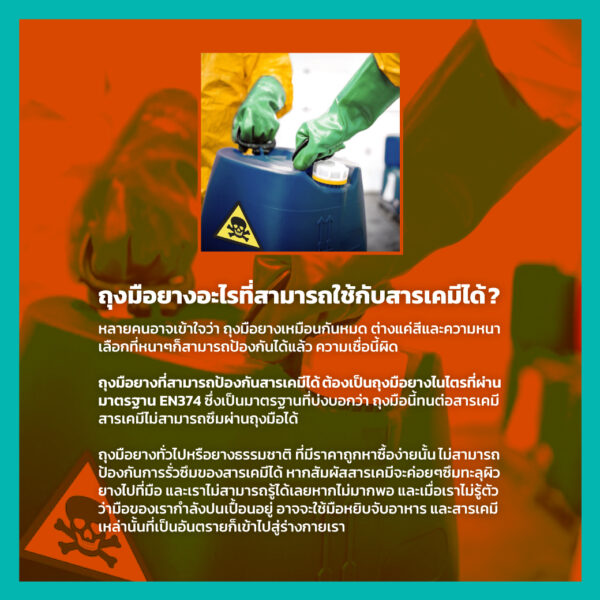
What type of rubber gloves can be used with chemicals?
Many people may misunderstand that all rubber gloves are the same, differing only in color and thickness, and that choosing thick ones is sufficient for protection. This belief is incorrect.
Rubber gloves that can protect against chemicals must be nitrile gloves and must meet the EN374 standard. This standard indicates that these gloves are resistant to chemicals, preventing chemicals from seeping into our hands.
General-purpose rubber gloves or natural rubber gloves, which are cheap and readily available, cannot provide protection. When these gloves come into contact with chemicals, the chemicals gradually seep through the rubber gloves into our hands. We may not even realize if it's not enough, and if we're unaware that our hands are contaminated, we may use them to handle food, allowing these hazardous chemicals to enter our bodies.
MICROTEX HI-CHEM Nitrile Gloves
The HI-CHEM nitrile gloves have special properties that make them suitable for protecting against chemicals. They can be worn while spraying insecticides without allowing the chemicals to seep through to the hands. They meet the EN374 standard and have many other additional features.
- Made from nitrile rubber, available in thicknesses of 15/18/22 mil, 13 inches long, with high durability.
- Provide protection against acids, bases, chemicals, and are resistant to oil.
- Textured fingertips and palm enhance grip and prevent slippage during use.
- Certified as Food Safe, suitable for handling food.
- Compliant with the EN374 standard for chemical resistance.
MICROTEX®️ NITRILE GLOVES MODEL HI-CHEM
Protect Yourself from Chemicals: Spraying Precautions
When working with pesticide spraying, always be mindful that we are dealing with potential danger and death. All types of insecticide chemicals are poisonous to humans and animals. Therefore, special caution must be exercised when using insecticide chemicals, and strict adherence to instructions is essential to minimize the risks associated with insecticide chemicals.
- Wear a face mask and rubber gloves, cover your body with appropriate clothing, and ensure a snug fit to prevent chemical particles from entering your mouth, nose, and body.
- Walk while spraying chemicals to allow for dispersion by the wind or block the wind's direction. Avoid walking against the wind.
- After completing the spraying, promptly change your clothes, shower to rinse your body thoroughly, and use soap to clean yourself every time. Work clothes should be laundered after each use.
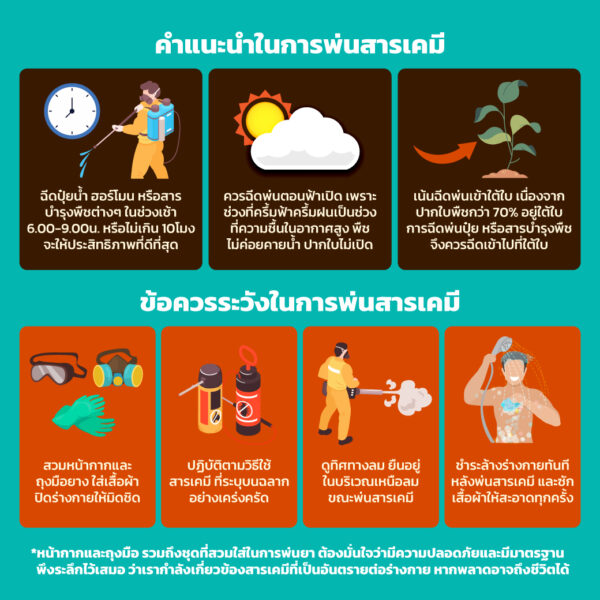
After donning protective gear, it's crucial to know the proper method of spraying chemicals
Choose the appropriate time for spraying. When using foliar fertilizers, hormones, or growth supplements, it is recommended to spray them in the morning between 06:00-09:00 a.m. for the best efficacy. Avoid spraying too late; ideally, finish by 10:00 a.m.
Check for suitable weather conditions. It's best to spray when the sky is clear, and the air is not too humid. Check the weather forecast to ensure no rain is expected. Spraying during overcast conditions can lead to high humidity, causing plants to transpire less and keep their stomata closed.
Spray properly. Focus on spraying underneath the leaves because about 70% of the plant's stomata are located there, with the remaining 30% on top. When spraying fertilizers, hormones, or foliar nutrients, it's essential to target the underside of the leaves for optimal absorption.
information. or request a quotation
Call Center: 034-878762 ext. 3
Or you can follow us at : Click here
Hotline 083 989 7512 (telephone sales department)


